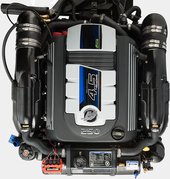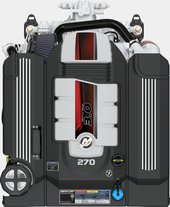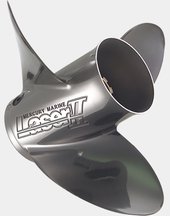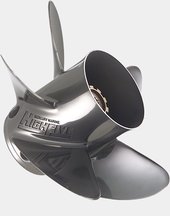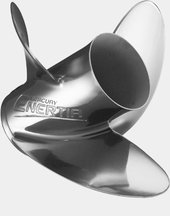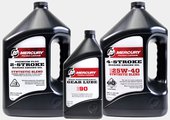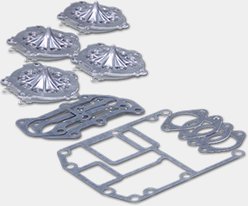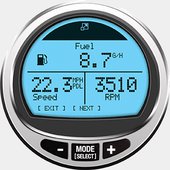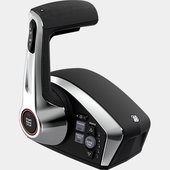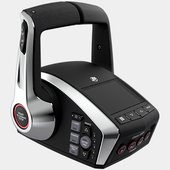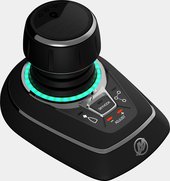Like the old saying goes, “There’s only one constant in life. Change.” This saying has never been truer than when discussing what has happened to the West Coast saltwater fishery in the last six years.
El Nino event of 2015 was the largest ever. This massive warm-water push from the west brought along a host of never-before-seen species such as wahoo, blue marlin, black marlin and even whale sharks into local waters. While the 2015 season was unlike anything in more than 100 years of recorded fishing history, the trailing effects of El Nino have been arguably more impactful.
Beginning in late 2015 and ramping up in early 2016, the waters off the Southern California coastline underwent an amazing transformation that has almost overshadowed mighty El Nino. The radical weather pattern spurred by El Nino brought a massive influx of anchovy baitfish, literally by the megaton. This unprecedented mass of bait has been accompanied by one of their favorite predators, the giant Pacific bluefin tuna.
While SoCal anglers are no strangers to bluefin tuna, they are accustomed to catching 15- to 50-pound fish for a month or two each season. This new weather and bait pattern has benefitted local anglers with an entirely new fishery consisting of a six- to eight-month season with nearly nonstop action thanks to hungry, 100- to 300-pound-plus bluefin tuna. These fish can be found as close as a few miles off the coast and as far as 120 miles offshore, depending on the currents.
This new fishery requires a completely new set of techniques. No longer is the tuna fishery a trolling game from the back of large, diesel-powered sportfishing boats. This new era of Southern California fishing requires power, speed and reliability.
These days, SoCal anglers need to be ready to run and gun on schools of finicky tuna and be able to make long runs on day trips. Enter the outboard era.
Several top West Coast captains have unlocked the key to success in this fast-paced and ever-changing fishery. These anglers are relying on big center-consoles and their walkaround counterparts to get them to the fish and keep them on the fish all season long. These big boats need big horsepower that can push them over the horizon to the next bite and get them home safely.
Mercury Pro Team member Capt. Ali Hussainy is among them. Based out of San Diego, Hussainy, the host of “Local Knowledge TV,” runs a 37-foot SeaVee powered by triple Mercury 350hp Verado outboards.
“Our game out here has really changed,” he said. “We need to be fast and flexible with where we fish. These big bluefin jump around a lot, and it’s nothing for me to have to pick up and make a 40-mile run to a new zone. Fortunately, my SeaVee has the ability to make these jumps in a matter of minutes and not hours.”
The new era of 30-plus-foot, multi-outboard-powered boats has enabled anglers to chase Pacific bluefin tuna and many other staple species. Savvy SoCal anglers are now turning overnight trips into day trips where they are home in time for dinner.
While speed is an awesome tool on the ocean, it means nothing without reliability and range. Fortunately, the new breed of large outboards offers both.
The Mercury Verado line of outboards is a proven leader in the reliability category with thousands of engines hard at work daily.
With fuel prices what they are today, anglers need economy from their rigs more than ever. Again, Mercury has answered the call with its high-horsepower outboard lineup. These modern mills provide superior fuel economy while running at much higher speeds and offering simpler maintenance than their diesel counterparts. They also bring along the latest in integrated propulsion technologies. It’s truly the best of both worlds, combining speed and economy for the often-required long runs to and from the grounds.
Capt. Brandon Nelson of Lucky B Sportfishing is also a part of the outboard movement. He runs a 36-foot Yellowfin with triple 300hp Verado outboards.
“I am fishing with different clients each day, and they all want the same thing: tuna. My boat gives me the ability to run to wherever the fish are that day, fill the box and still have my clients back at the dock before sundown,” he said. “I really feel the big center-consoles are here to stay in our waters.”
West Coast anglers seem to agree with this migration in boats. It seems as if new multi-engine boats are popping up in the region daily. This is clearly not a fad, but rather an adaptation to the fishery by using the best tools for the job.
While no one knows how long the region will be blessed with this epic fishery, one thing is for sure: Big outboard-powered boats are not going to leave the West Coast anytime soon.
Check out this video to see how high-horsepower outboards are helping SoCal anglers adapt to a changing fishery.
See more great content from Ali on Facebook, Instagram and YouTube.



